
Naming every expedition participant in a telepresence-enabled mission is next to impossible! Many from dozens of institutions across the country have provided input into the expedition plan and are expected to participate. However, we've assembled information about the members of the science and remotely operated vehicle teams who are physically onboard NOAA Ship Okeanos Explorer, and whose voices you are likely to hear most often when watching the live video.
And of course, none of this exploration would be possible without the work of the dedicated NOAA Commissioned Officer Corps and civilians who operate NOAA Ship Okeanos Explorer as part of NOAA's fleet managed by NOAA's Office of Marine and Aviation.
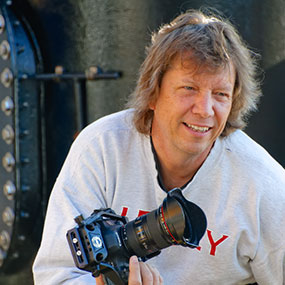
Photographer and Producer
For 34 years, Emmy-award winning photographer and producer Art Howard has helped viewers experience life through images from 50 countries and seven continents. A native North Carolinian, Art has followed researchers aboard multiple deep-sea missions, documenting the excitement and challenges of offshore reef exploration. Art will use the latest video technology to bring viewers as close as possible to life at sea from the surface to depths of 3,000 feet, capturing both the scientists and the life they seek to understand. Howard has spent the last 11 years independently producing media for the North Carolina Museum of Natural Sciences.
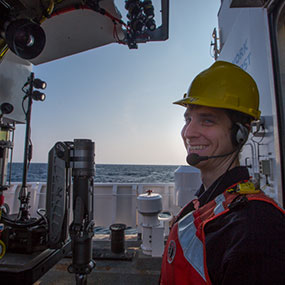
Systems/Robotics Engineer, Autonomous and Remotely Operated Underwater Vehicles
Bobby Mohr is a Systems/Robotics Engineer, specializing in autonomous and remotely operated underwater vehicles. He holds a B.S. in physics and graduated cum laude from Davidson College in 2009. Bobby started his career as an engineering technician with Greensea Systems where he was responsible for the design, development, and testing of autonomous underwater vehicle control systems. Like many of our engineers, Bobby realized that he would enjoy the design-build process more if he was able to also pursue the challenges of making vehicles work successfully at sea. After serving on several projects at Greensea where he specialized in electrical and software systems support, Bobby joined the Ocean Exploration program as an electrical systems engineer. During his time at Greensea and now with NOAA, he has been one of the key electrical engineers on the development of our 6000-meter-rated remotely operated vehicle system, Deep Discoverer and Seirios. Like many of our engineers, he has multiple skills and is a tremendous asset to our program.
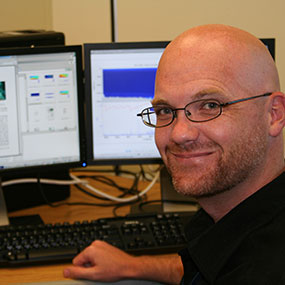
Oceanographer/Data Manager, NOAA Office of Ocean Exploration and Research
Brendan Reser is an oceanographer responsible for integrating telepresence with data management aboard the NOAA Ship Okeanos Explorer. He ensures that exploration data collections are accessible to shoreside participants during and after the expedition. Brendan specializes in automating processes and in developing unique data display capabilities. Prior to joining NOAA, Brendan was involved in field sampling and data management efforts in response to the Deepwater Horizon incident. Brendan has a Master of Science degree in Oceanography from Oregon State University and a Bachelor of Science degree in Biology from the University of New Mexico. He is currently employed by General Dynamics Information Technology, and is contracted to support NOAA's Office of Ocean Exploration and Research through NOAA’s National Coastal Data Development Center (NCDDC). His operational base is the NOAA field office located at NCDDC, Stennis Space Center, Mississippi.
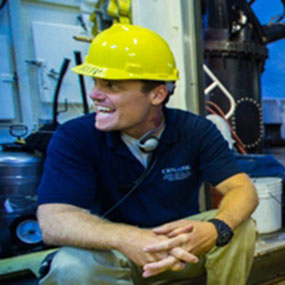
Faculty, University of Hawaii, College of Engineering
Brian Bingham received his Ph.D. in mechanical engineering from the Massachusetts Institute of Technology in 2003. After a brief stint at the Ocean Institute in California, Brian was appointed to a post-doc position at the Woods Hole Oceanographic Institution, Deep Submergence Lab. He is currently a faculty member at the University of Hawaii at Manoa where he does research on innovative tools for expanding the capabilities of ocean science for exploring, understanding, and protecting the marine environment. Brian is a highly published author and his work includes projects on underwater navigation, autonomous vehicles, and sensor integration. Brian's broad experience in the deep ocean community makes his contributions to the Ocean Exploration Program invaluable. His skill as a navigator, co-pilot, and a very experienced vehicle control engineer are but a few of the talents Brian brings to the group. He is the recipient of the 2010 Hi Chang Chai Excellence in Teaching Award at the University of Hawaii, College of Engineering which has made him a great fit for our program's dedication and commitment to mentoring young engineers. When not on assignment for Ocean Exploration, Brian resides in Honolulu, Hawaii.
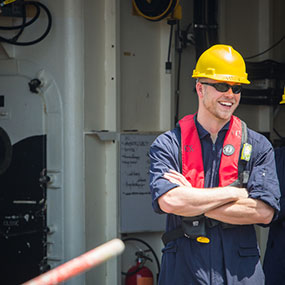
Ocean Engineer
Chris first joined our group on the Cayman Rise Expedition in 2011, just prior to being hired full time by NAVSEA. Since then, an informal NAVSEA-NOAA relationship has allowed Chris to continue to participate in our design, engineering, and offshore operations. Chris holds a B.S. in Ocean Engineering and a B.S. in Aerospace Engineering from Virginia Tech with a minor in mathematics. He is currently working on his M.S. in Ocean Engineering at Virginia Tech and expects to complete that program in 2015. Chris has been a major contributor to our design-build process and a tremendous asset to our offshore operations. He is a skilled navigator, pilot, and co-pilot of our vehicles and brings with him a level of enthusiasm that everyone around him appreciates and respects. The Office of Ocean Exploration and Research is very lucky to have his participation and we applaud NAVSEA for their insight, training, and willingness to share great talent. Chris resides in Arlington, Virginia.
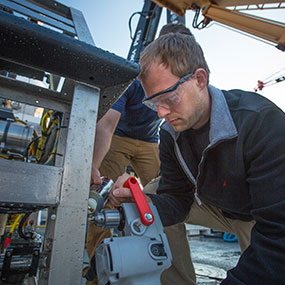
ROV Engineer and Telepresence Team Member
Daniel Rogers brings with him a diverse background in engineering, media production, and education. Daniel holds a B.S. in physics and received an M.S. in mechanical engineering from the University of Hawaii in 2013. His graduate work focused on the development and evaluation of an autonomous marine vessel designed for port and harbor security missions. Before starting his graduate program, Daniel worked as a science educator at the Bishop Museum in Honolulu where he continued as a digital media producer while in school. A lifelong interest in the sciences inspires him to learn all he can about the natural world and he is passionate about sharing the drama, allure, and wonder of scientific inquiry with others. Daniel currently works as a media producer and autonomous systems engineer in Honolulu, Hawaii.
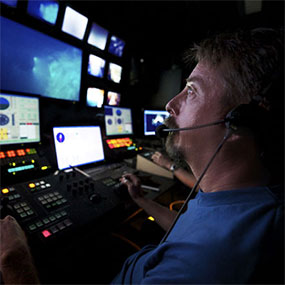
Electrical Engineer
Dave Wright joined the Ocean Exploration Program in 2009, bringing a set of skills that most would envy. A self-taught engineer, he is highly respected in the field of underwater technology, having spent a great deal of time working with Dr. Robert Ballard at the Institute for Exploration and as a valued member of the Monterey Bay Aquarium Research Institute. Dave is one of our senior pilots and in addition to being an outstanding and invaluable electrical engineer, he is one of our most valued and respected mentors to the younger generation we seek to train. Dave is a veteran of some of the earlier Ocean Exploration projects, having served as pilot on the 2004 Titanic cruise, the 2004 and 2005 Mountains in the Sea cruises, and the 2005 cruise to Lost City. He is a co-inventor of the 'Aquatic Autosampler,' a fully automated system for in situ species identification of toxic phytoplankton, which was developed while he worked at the Monterey Bay Aquarium Institute. When not on assignment with Ocean Exploration, Dave resides in Louisville, Kentucky.
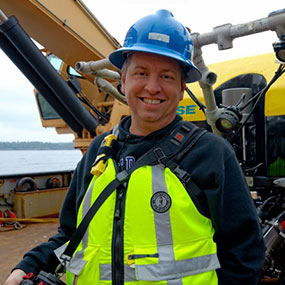
Video Producer, Editor, Post-Production Supervisor
As a post-production professional with global expertise, Ed McNichol has been a film and video editor since 1982. A recognized expert in his field, Ed taught editing worldwide at Sony for 11 years. His current focus is on sophisticated systems that support deep-sea research and exploration using remotely operated vehicles. Ed’s articles on post-production have appeared in many professional trade publications, including Post, TV Technology, and Video Systems. His work has received numerous prestigious awards. As the winner of both Emmys and Tellys, Ed brings a unique talent to our Ocean Exploration group. His skill in camera operation and video editing are a tremendous value in helping us capture and document what we find in the deep ocean. Ed resides in Seattle, Washington.
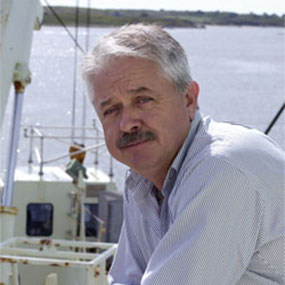
Science Team Co-lead, Senior Research Scientist/Associate Director International Relations, University of Texas/Austin, Jackson School of Geosciences, Institute for Geophysics
Dr. James (Jamie) Austin primarily uses a wide variety of geophysical techniques – 2D and 3D multichannel seismic reflection (MCS) profiling, CHIRP high-resolution imaging, and echo-sounding – to investigate diverse continental margin and tectonic plate boundary sedimentary and structural environments. He has worked in such environments worldwide more than 40 years: from the Antarctic to the Arctic and in all the major (and some of the minor) ocean basins. Austin has also served in various national and international community leadership positions: as head of development of the American Geophysical Union (2004-2010), as director of the scientific ocean drilling program (1994, 2004), as an advisor to NOAA’s ocean exploration program (2004-2014), and as a Trustee of Woods Hole Oceanographic Institution (2007-present). He served as the onboard co-lead for a scientific expedition aboard NOAA Ship Okeanos Explorer in the Gulf of Mexico previously in April 2012. He also sailed on the Ocean Exploration Trust’s Nautilus in 2010 and 2011.
Austin earned a B.A. (magna cum laude) in geology at Amherst College (1973) and a Ph.D. in Oceanography at the Massachusetts Institute of Technology/Woods Hole Oceanographic Institution Joint Program in 1979. He has been at The University of Texas/Austin for more than 35 years. He has spent more than four years at sea on 28 different research vessels and has co-authored more than 100 peer-reviewed publications.
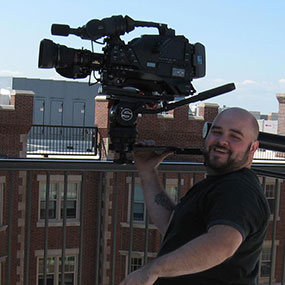
Telepresence Engineer, NOAA Office of Ocean Exploration and Research
Jared Drewniak is a New England native with a passion for science, technology, and story telling. Over the course of his career he has been an improv comedian, a crime reporter in New York City, a Distance Education Technical Director at Harvard, a Field Operations coordinator at the Massachusetts Institute of Technology (MIT), and freelance education consultant. His early work with Northeastern University and MIT helped pioneer technology and techniques for distance learning that have become standard practice today. He was an early entrant into the nascent field of Massive Online Open Course education and produced some of the first courses featured on EdX. His live broadcast work with both the International Space Station (for NASA TV and MIT) and the Okeanos Explorer deep-sea exploration program (for NOAA) means he has connected some of the highest and deepest live broadcast origins in the history of mankind. He remains unsure if this qualifies as a Guinness World record or not.
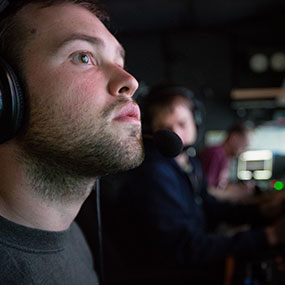
Electrical Engineer
Jeff Laning holds a B.S. in Electrical Engineering from the University of Vermont. His career started as an intern with Greensea Systems, Inc. where he worked on design, development, and integration of components and software associated with remotely operated vehicles and autonomous underwater vehicle systems. Jeff is one of youngest members and comes to our group with a great attitude for learning new and relatively complex electrical systems. Electrical engineers interested and capable of working on deep submergence systems are one of the hardest positions to fill. Jeff has done a great job for us and continues to build his experience under the guidance of some of our older and more experienced mentors. He was a key member of the team that built Deep Discoverer and has become a skilled navigator and is currently training as one of our pilots. His contribution to ocean exploration is certainly something to be proud of and we hope that other young engineers will be inspired by what he has accomplished. Jeff currently resides in Rhode Island.
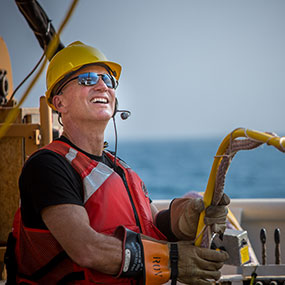
Electrical Engineer
With five U.S. patents and multiple publications outlining autonomous underwater vehicle (AUV) research under his belt, Jeff Williams has contributed more than his fair share to ocean exploration and engineering. Williams graduated from the Rochester Institute of Technology with an Electrical Engineering Degree, Highest Honors, and a driving sense of curiosity and adventure. After working as an engineer for firms including Raytheon and Ascom/Timeplex, Jeff set out to circumnavigate the globe; a voyage that would take him 40,000 miles and five years to complete.
It is at the convergence of this knowledge, skill, and experience that Jeff was to become an autonomous and remote underwater vehicle specialist. An accomplished pilot, navigator, and engineer, Jeff has a holistic understanding of the systems and techniques required to explore one of the most unforgiving environments on our planet. In 2010, Jeff worked with the National Research Council Canada to deploy an AUV for 10 days under Canadian Arctic Ice, an expedition risky to equipment and personnel alike. And while Jeff works in some of the most inhospitable environments on the planet, his up-beat disposition and sense of humor make him a pleasure to work with. He has been with theOkeanos Explorer program since 2011 where he's helped explore the deepest portions of the Mid-Cayman Rise, Galapagos Spreading Center, Gulf of Mexico, and Northeast Canyons.
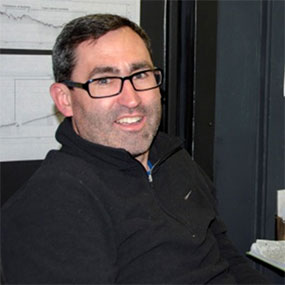
Physical Scientist, NOAA Office of Coast Survey
Jeff Marshall has a B.S. in Earth and Atmospheric Science from Rutgers University and earned an M.S. in Earth Science from the University of North Carolina Wilmington in 2004 with a concentration in coastal geology. Jeff is a recent addition to NOAA, working as a physical scientist with the Office of Coast Survey as a member of the Hydrographic Surveys Division Atlantic Hydrographic Branch in Norfolk, Virginia. Previously, Jeff worked as a research specialist and project manager with the Burroughs and Chapin Center for Marine & Wetland Studies at Coastal Carolina University in Conway, South Carolina. Here he was the marine operations lead on numerous shallow water multibeam sonar data research projects.
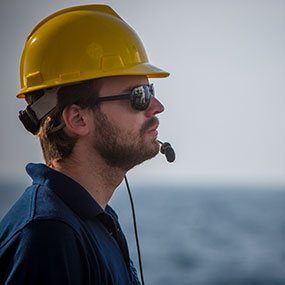
Mechanical Engineer
Joshua Carlson attended the University of Massachusetts, Dartmouth, where he received a B.S. in Mechanical Engineering with minor in Business Administration. He went on to receive his M.S. in Marine Observation Technology from the University of Massachusetts, Dartmouth School for Marine Science and Technology. Josh has a diverse background, encompassing the use of autonomous underwater vehicles (AUVs) and other types of ocean observation platforms for the purpose of studying ocean turbulence. He has designed and built a deep-ocean camera platform for filming deep-water krill in the Antarctic Ocean and provided mechanical engineering and software capabilities on the Woods Hole Oceanographic AUV Sentry during a recent cruise aboard the NOAA ship Okeanos Explorer. In his current position with NOAA’s Ocean Exploration program, Josh provides engineering, programming, and at-sea support, acting in the capacity of navigator, pilot, and co-pilot for NOAA’s 6000-meter-rated remotely operated vehicle system, Deep Discoverer. His broad range of skills in both engineering and software control development makes him an invaluable member of our team. When not traveling, Josh resides in Fairhaven, Massachusetts.
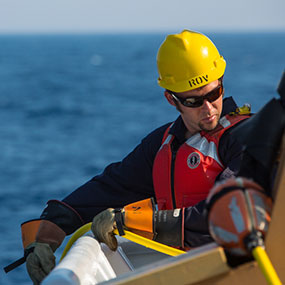
Ocean/Mechanical Engineer
Karl McLetchie is a graduate of the Massachusetts Institute of Technology. He holds B.S. and M.S. degrees in Ocean and Mechanical Engineering. After graduating, he worked as an engineer on the development of autonomous underwater vehicles and as a naval architect on the design of high-speed aluminum vessels. After a brief, two-year stint of delivering sailboats around the Caribbean, he started his own contracting company, SeaKnowledge, in 2008. Through SeaKnowledge, Karl works on the mechanical design and operation of underwater vehicles. Karl has worked on Okeanos Explorer for six seasons, in all positions on the ROV Team from Winch Operator to Dive Supervisor. When not on assignment for Ocean Exploration, Karl resides in Pemaquid, Maine.
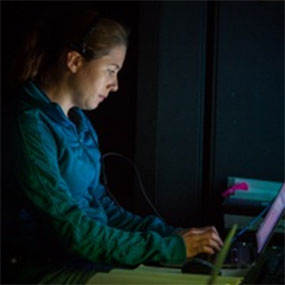
Expedition Manager, NOAA Office of Ocean Exploration and Research
Kelley Elliott is the Operations Lead for NOAA’s Office of Ocean Exploration Research and the Senior Expedition Manager for the Okeanos Explorer Program. She holds a Master’s degree in Maritime Archaeology from the University of Southampton and a Bachelor’s degree in Environmental Conservation from New Century College, George Mason University. Kelley is responsible for planning, coordinating, and managing expeditions conducted by NOAA Ship Okeanos Explorer. She has coordinated 10 Okeanos’ cruises since joining the operation in 2009, including five telepresence-enabled remotely operated vehicle cruises and one telepresence-enabled autonomous underwater vehicle cruise. In this role, she acts as a liaison for science and operational partners onshore as well as coordinating the mission planning process between all personnel onboard the ship. Her background demonstrates the depth of knowledge and expertise the Ocean Exploration Program requires and embodies. In addition to geographic information system, video editing, and web publishing expertise, Kelley is an excellent writer and frequently develops and edits articles for publication on NOAA’s website.
Over the last decade, her combined professional and academic field experiences have taken her around the globe investigating a diversity of science topics from Arctic Ocean ecology, tropical ecosystems, and submerged cultural heritage to deep-sea ecosystems including hydrothermal vents, gas seeps, submarine canyons, and deep-sea coral habitats. An explorer at heart, Kelley spends most of her spare time exploring the great outdoors from the volcanos of Nicaragua to the trails surrounding her home in Reston, Virginia.
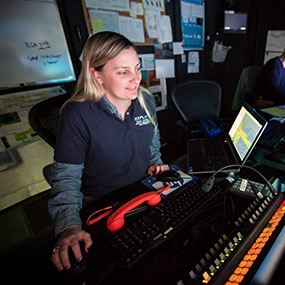
Physical Scientist/Hydrographer, NOAA Office of Ocean Exploration and Research
Meme Lobecker holds an M.A. in Marine Affairs from the University of Rhode Island and a B.A. in Environmental Studies from George Washington University. She has spent 14 years in the environmental field, 12 of which were directly related to seafloor mapping and the marine sciences. Meme comes to the Ocean Exploration program as our Senior Mapping Team Lead, in charge of our ocean mapping systems onboard the NOAA Ship Okeanos Explorer. During an exploration cruise, Meme is one of our lead hydrographers who are responsible for all mapping data collected. She produces the maps that are required for the exploration process to proceed and prepares the mapping routes for day-to-day planning so the ship is always uses its maximum efficiency.
When not at sea mapping, Meme works on the post processing and archiving of data and plans for future cruises. She is based at the Center for Integrated Ocean and Coastal Mapping at the University of New Hampshire, in Durham, New Hampshire. Meme resides in Portsmouth, New Hampshire.
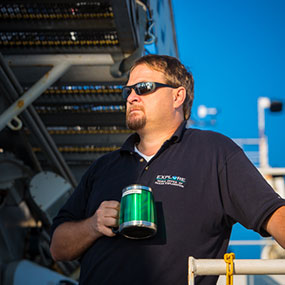
Electronic Systems Engineer
Roland Brian brings 29 years of experience and a keen eye for precision HD video to the program as a video/satellite and telepresence engineer. Roland began his career in the U.S. Air Force where he worked as a Satellite Communications Engineering Technician with visions of working on the U.S. Space Station. He traded in that quest for one of deep-ocean exploration and sharing beautiful imagery with the world. He has worked with the NOAA Office of Ocean Exploration and Research (OER) and the Okeanos Explorer Program since 2009 and has been engaged in every telepresence-enabled remotely operated vehicle (ROV) expedition. He has also provided services for other projects using OER’s mobile telepresence system, including the 2012 Ring of Fire Expedition. His duties aboard NOAA Ship Okeanos Explorer include operation and maintenance of the ship's Telepresence and video systems, including on ROV Deep Discoverer and the Seirios camera platform. Again, Roland’s experience embodies the breadth and depth of knowledge the OER program encourages. When not fine-tuning the video and telepresence systems or training and mentoring new team members, he's actively involved in the editing process of our ever-expanding ocean exploration video library. While not at sea, Roland enjoys life with his wife and family in sunny Sarasota, Florida.
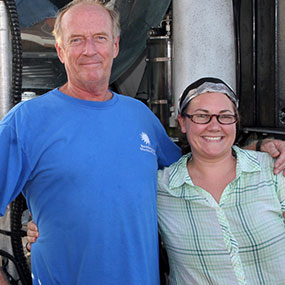
Expedition Science Team Co-lead, Harbor Branch Oceanographic Institute at FAU
Stephanie is a Biological Research Specialist at Harbor Branch Oceanographic Institute, Florida Atlantic University (HBOI/FAU). Stephanie received her undergraduate degree from the University of Tampa with a double major in Marine Science and Biology. She graduated with her Masters from Nova Southeastern University’s Oceanographic Center (NSUOC) with a major in Marine Biology. While at NSUOC, Stephanie studied the biogeography of the Straits of Florida with Dr. Charles Messing to complete a comprehensive study of the deep-sea animals of the region. Stephanie was hired as a Biological Scientist at HBOI-FAU in 2010, working for John Reed and the Cooperative Institute of Ocean Exploration Research and Technology and the Robertson’s Coral Reef Program. Here, she manages and analyzes all the deep-sea data collected at sea using her self-created Microsoft Access database.
Stephanie has participated in more than 10 cruises utilizing deep submergence technology including remotely operated vehicles and human occupied vehicles. Stephanie has almost 10 years of experience identifying and studying deep-sea and mesophotic invertebrates in the Southeast Atlantic and the Gulf of Mexico. Most of her work has been conducted off the southeastern United States and eastern Gulf of Mexico, including the Straits of Florida, shelf-edge marine protected area sites from Florida to North Carolina, the deepwater Oculina Habitat Area of Particular Concern (HAPC), and the newly designated deepwater coral HAPC. In the Gulf of Mexico she participated in a month-long mission with the Johnson-Sea-Link submersible to study the effects of the 2010 oil spill on deepwater and mesophotic reefs in the eastern Gulf of Mexico, surveying sites at Pulley Ridge HAPC, Florida Middle Grounds HAPC, Madison Swanson, and Tortugas Ecological Reserve. During this cruise she helped discover living Lophelia coral reefs at depths of 500 meters off the West Florida shelf. Some of this information was used to select sites for this Okeanos Explorer expedition. In 2012, Stephanie participated in two Okeanos expeditions, one onboard assisting the night-time multibeam mapping of new dive sites and on another as a shore-based scientist joining via telepresence. Stephanie has co-authored over 25 publications, technical reports, and presentations.
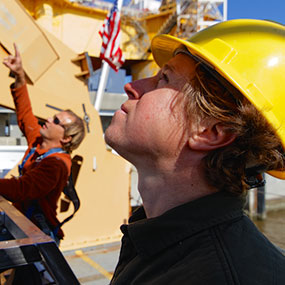
Mechanical Engineer
Todd Gregory received his B.S. in Naval Architecture and Marine Engineering from Webb Institute in 1999 and his M.S. of Ocean Engineering from the University of Hawaii at Manoa in 2001. From 2002 to 2010, Todd was employed by Dr. Robert Ballard’s Institute for Exploration, where he served as the principle mechanical/ hydraulic designer for the remotely operated vehicle (ROV) system Hercules. He has served as a Guest Investigator at the Woods Hole Oceanographic Institution and as an Associate Marine Development Engineer at the University of Rhode Island-Graduate School of Oceanography and is currently a Mechanical Engineering Consultant to NOAA’s Office of Ocean Exploration and Research (OER). Todd is our principle mechanical engineer for OER’s 6000-meter rated, two-body ROV system Deep Discoverer and Seirios, and is one of the chief pilots during our offshore operations. He has participated in numerous international research expeditions and is a tremendous asset to the oceanographic community.His efforts in mentoring our newer engineers and impeccable attention to detail are but a few of his many contributions to the Ocean Exploration program.Todd currently resides in North Kingstown, Rhode Island.